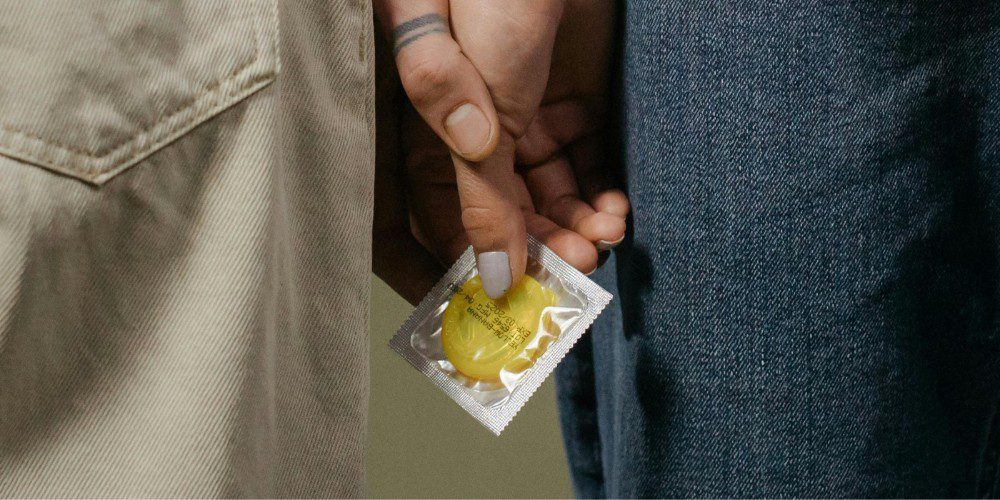
Sex & Relationships
Male contraception on the NHS: everything you need to know in 2025
Jessie Day, Senior Editor | 19 Sep 2025
Why male contraception is back in the spotlight
For time almost eternal, contraception across the globe has mostly been considered a woman’s responsibility. Pills, implants, injections, IUDs, and patches have all been designed for women, while men have had just two main options: condoms or a vasectomy.
It’s pretty stark isn’t it, on so many levels?
In 2025, however, things feel different. Research into male methods is accelerating, and there’s growing pressure for shared responsibility in family planning. Coupled up or single, people want more options, and health services are beginning to recognise the importance of giving men more than the rubber, or the snip.
But what does this actually mean for those relying on the NHS? Can men get a contraceptive pill yet? And what should people know if they’re considering their choices, in 2025?
Quick FAQs: male contraception and the NHS
To start with the most common questions:
- Is there a male contraceptive pill? No. As of 2025, there’s no pill for men on the NHS or elsewhere, though drugs like YCT-529 are in human trials.
- Is there a contraceptive for males? Yes – but limited. The NHS offers condoms and vasectomy as the only reliable male options.
- When will the male contraceptive pill be available? Experts suggest it could be 5-10 years away, with NHS rollout unlikely before 2030.
Bummer. But with that cleared up, let’s look more closely at what’s available now, what’s in development, and why the journey to male contraception is taking so long.
What male contraception actually means
When we talk about male contraception, we’re referring to methods that men can use to prevent pregnancy. At present, the NHS defines this very narrowly:
- Condoms, which act as a barrier and prevent sperm from entering the vagina.
- Vasectomy, a small operation that blocks or cuts the tubes carrying sperm.
That’s the full list. Despite media headlines about pills and implants, nothing beyond these two has made it through trials and into NHS services yet.
The male contraceptive pill: where are we now?
The question comes up again and again: is there a pill for men yet? The simple answer is no – you can’t request a male contraceptive pill from your GP or find it in NHS clinics.
That said, research is closer than ever. One of the most promising candidates is YCT-529, a non-hormonal drug that blocks a protein essential for sperm production. Unlike hormonal options tested in the past, this approach avoids common side effects such as mood changes, weight gain, or acne.
There are also hormonal pill prototypes, but these have repeatedly stalled due to concerns about tolerability.
The reality is that while female contraceptives have been accepted with side effects for decades, male methods face higher barriers to approval. You can quote me on that.
Those key points, again:
- There is no male contraceptive pill available on the NHS.
- Human trials for new pills are underway, but widespread use is several years away.
- Realistically, an NHS rollout won’t happen until the early 2030s.

What can men get on the NHS today?
So, if pills and implants aren’t ready yet, what options are available now? The answer remains the same as it has for decades: condoms and vasectomy.
Condoms are the easiest to access. They’re available for free at GP surgeries, sexual health clinics, and through NHS outreach and youth services. Many regions also run discreet postal delivery schemes. They’re simple, instantly reversible, and protect against both pregnancy and sexually transmitted infections (STIs).
Vasectomy is the surgical alternative. It involves cutting or sealing the tubes that carry sperm, making pregnancy almost impossible. The procedure is quick and safe, but it’s intended to be permanent. NHS reversals are not typically offered, so anyone considering vasectomy should be confident they do not want more (or any) children.
Takeaway:
- Condoms – accessible, free, dual protection, but user-dependent.
- Vasectomy – over 99% effective, permanent, available via GP referral.
What’s in the pipeline for male contraception?
Even if the NHS can’t prescribe new male methods today, research is advancing in several areas. Some of the most talked-about options include:
- Hormonal gels such as NES/T gel, applied daily to the shoulders, which suppress sperm production while maintaining testosterone.
- Non-hormonal hydrogel implants (nicknamed “Adam”), which block sperm ducts for up to two years and can be dissolved when contraception is no longer needed.
- Reversible sperm blockers, experimental drugs that stop sperm swimming properly. These could work quickly and wear off just as fast.
- Non-hormonal pills like YCT-529, designed to avoid the side effects that featured in trials for hormonal options.
These methods are still in testing, but they represent the strongest progress we’ve seen in male contraception to date.
Yes, but when?
Timelines vary, but experts generally agree:
- Best-case scenario: a male pill or implant could be approved in the late 2020s.
- More realistic: NHS availability closer to 2030, given regulatory reviews, safety checks, and funding decisions.
History suggests a cautious approach. Even once approved, adoption depends on cost-effectiveness and trust. For comparison, the contraceptive implant for women took years from approval to NHS standard practice.

How to access male contraception right now
If you’re looking for NHS-funded options today, here’s how it works:
- Condoms: Ask at your GP surgery, local clinic, or sexual health service. Many NHS websites allow you to order them online.
- Vasectomy: Book a GP appointment to discuss. If appropriate, you’ll be referred for the procedure. Expect counselling, a waiting period, and follow-up checks.
Beyond these, men can’t yet access pills, gels, or implants. If you’re interested in future methods, you can keep an eye on UK clinical trial recruitment or speak with your GP about ongoing research.
Things to bear in mind
Choosing a method isn’t just about availability. Effectiveness, reversibility, and side effects all matter.
- Effectiveness: Vasectomy is over 99% effective. Condoms are effective, but more prone to failure if not used correctly.
- Reversibility: Condoms are instantly reversible. Vasectomy is considered permanent. New methods are being designed with reversibility in mind.
- Side effects: Historically a stumbling block for male contraceptives. Non-hormonal methods aim to remove this barrier.
- Fairness: A major driver is balancing responsibility. Male contraception could allow us to share the mental and physical load more equally.
Why has male contraception taken so long?
It’s a fair question. If women have had multiple options since the 1960s, why do men still have only two? Several factors explain the delay:
- Men produce millions of sperm daily, compared to one egg per cycle – potentially harder to suppress safely.
- Past male contraceptives caused side effects similar to those tolerated by women, but regulators pulled the plug. Moving swiftly on …
- Research funding was disproportionately directed toward female contraception.
- Regulators are cautious with drugs intended for healthy people, especially when other options (condoms) exist.
Progress has been slow, but the past five years suggest momentum is finally building.
Contraception, fertility and family planning
Contraception is more than just pregnancy prevention. It’s about family planning, reducing stress, and creating fairness across society.
For parents, particularly, the arrival of a male pill could reshape how partners share responsibility. It could also benefit women who can’t tolerate hormonal contraception, or simply want a break from it.
If you’re interested in fertility and life after having children, you may also want to read: Are you more fertile after having a baby?
NHS guidance and next steps
At present, NHS advice for men is simple: use condoms, or consider vasectomy if you’re certain you don’t want more children.
For more information, see:
- NHS Contraception – official guidance on methods and access.
- Your GP or local clinic – for condoms, vasectomy and specific advice.

Summary: male contraception on the NHS in 2025
So, can you get male contraception through the NHS? Yes – but options are limited.
- Condoms and vasectomy are the only NHS-backed male contraceptives today.
- There is no male contraceptive pill available yet, despite promising trials.
- New methods like gels, implants, and pills could reach the NHS in the next decade, but 2030 is the more realistic horizon.
For now, condoms and vasectomy remain the mainstay. But with research moving forward, the 2030s may finally bring equality to the contraceptive conversation.



